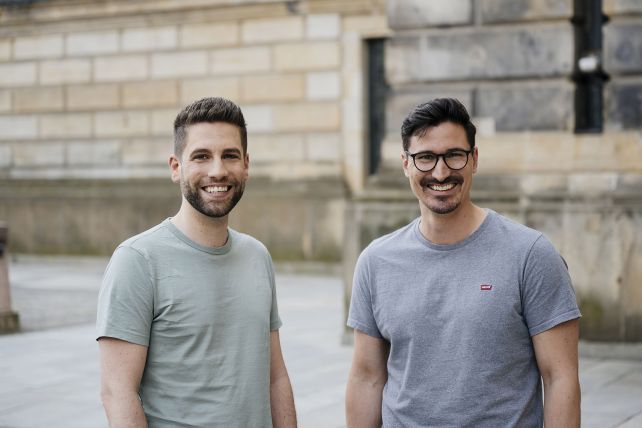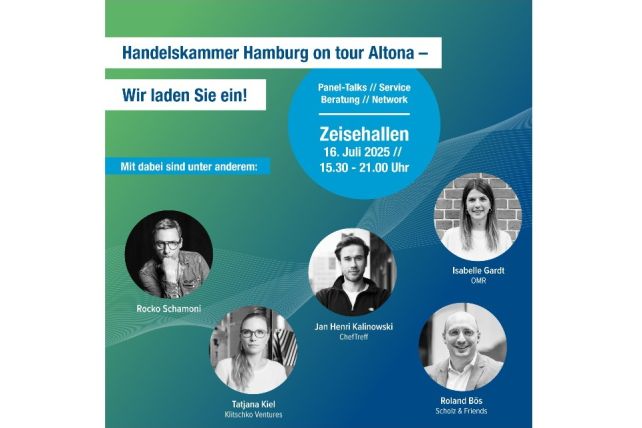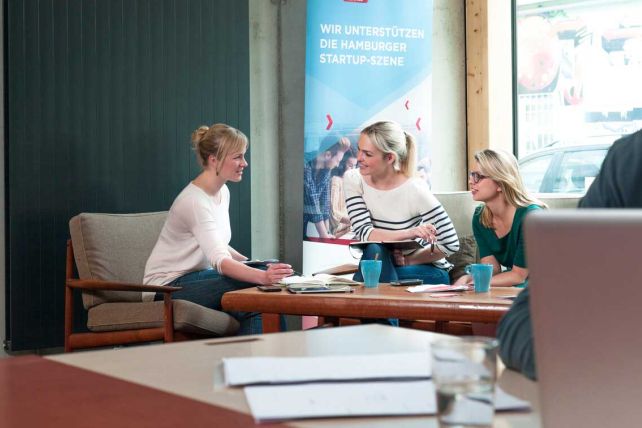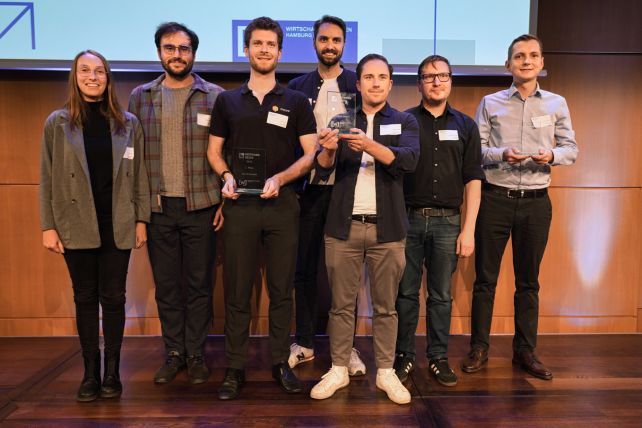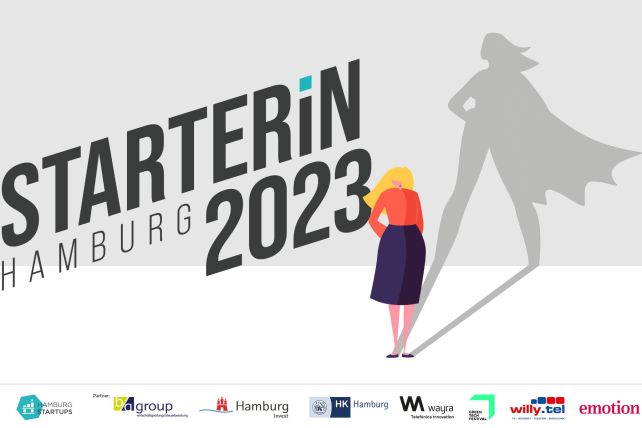Hardly any Hamburg-based startup has received as many awards in recent years as Nect for its smartphone identification process. Even a setback last year could not deter it from its fundamental course of success.

First award right at the start of the company
Just founded, the startup Nect was already able to win its first competition in February 2017. The founders Benny Bennet Jürgens and Carlo Ulbricht gained first place in the GründerGeist competition organized by the Wirtschaftsjunioren Hamburg. Nevertheless, the two were not absolute newcomers. Carlo, a business economist, brought around ten years of work experience in Bremen from the logistics sector, while Benny, an IT specialist, had been employed for the same length of time at a big insurance company in Hamburg.
They developed the business idea for Nect in 2016 as participants in the InsurTech Accelerator in Munich, which was supported by ten large insurance companies. Over a period of six months, they received intensive coaching and were able to develop their first prototype. The idea behind Nect is as simple as it is compelling: the smartphone serves as a tool for secure identification verification that eliminates the need for cumbersome registration and login processes.

2018 the first major customer
In the course of 2017, Nect won a number of other competitions and awards, including at CeBit and at the Fintech Lounge of Finanzplatz Hamburg, rewarded with a one-week trip to Silicon Valley. The final breakthrough came in November 2018, when the startup not only received further nominations and awards, for example at the Munich Digital Innovation Award, but even more important was the news that Nect had won its first customer, R + V Versicherung. This was the first practical application of the self-identification process.
In this process, users download an app, create a short selfie video according to its specifications, and then film their ID card or passport. A speech test is also part of the process. In the background, software based on artificial intelligence checks whether it is a real person and not just a photo, for example. The app guides the user step by step through the registration process and compares the identity with the ID card. If the process gives the green light, the customer can view their contracts directly online.
The app is not only quick and intuitive to use, it is also secure: The procedure meets all legal requirements, for example from the German Federal Data Protection Act, the EU General Data Protection Regulation and the Insurance Supervision Act.
Over the years, the product offering has been further refined and expanded. Nect Wallet, as the app is called, has offered Nect Sign in addition to Nect Ident since April 2022. This application allows the creation of a qualified electronic signature (QES). This enables users to sign contracts, powers of attorney and other documents via the app after they have completed a digital identification process. Nect Ident and Nect Sign therefore go hand in hand.

2020 - a year full of milestones
We'll come back to 2022 later, but first Nect's story takes us to 2020, where the company was able to operate profitably for the first time. For a startup still in development, this is not a matter of course. Founder Benny also describes as a real breakthrough the trust that was placed in Nect Ident when Corona emergency aid was disbursed. Customers included development banks such as IFB Hamburg and the Federal Employment Agency.
In the early summer of 2020, well-known investors also relied on Nect and provided a Series A financing round in the mid-seven-figure range. Among them was the V-C fund ALSTIN Capital. The most prominent partner there is Carsten Maschmeyer, known from the TV show "Die Höhle der Löwen." He commented at the time:

The road to success continues
In September 2020, Nect received the Hamburg Founders Award in the category "Startups". The celebration did not take place as a large gala in the Fish Auction Hall as usual, but in a small circle in the Hamburg Chamber of Commerce. The Covid pandemic with its numerous restrictions was still dominating events at the time. In 2021 Nect also made it into the top 3 at the German Founder's Prize. At the end of the year, the startup was able to report two further milestones: In the meantime, 90% of the health insurance companies in Germany were among its customers. And the team had grown to 100 people.
Everything pointed to 2022 being another successful year for Nect. The company's fifth anniversary was coming up and the move to a new office building, jokingly called the "Nect Tower". The double victory at the Hamburg Innovation Summit in June, where there was both a jury and an audience award, was in keeping with this. Prior to that, the startup had been able to win its first Polish customer in March, entering the crypto industry in the process.

The Chaos Computer Club causes a setback
However, Nect then received a significant setback in August. The Chaos Computer Club announced that it had successfully overcome common solutions for video-based online identification. Among other things, it had gained access to the electronic patient file of a test person. The Gesellschaft für Telematikanwendungen der Gesundheitskarte mbH (gematik) reacted immediately and declared video-based online identification procedures to be illegal. This ruling is still in effect today.
The decision by gematik, in which the German Federal Ministry of Health is involved among others, is certainly controversial, and in other industries, video ident is still in high demand. This applies to insurance companies as well as lottery providers. One of the most important customers is Deutsche Telekom, where the procedure is used 80% of the time.

New ideas and solutions
For health insurers, Nect has an alternative offering. Since 2010, the German ID card has had an online ID function called eID. The Nect Ident process with eID function begins by picking up the ID document. Then the NFC chip contained in the ID card is read by touching it with the mobile device. After entering the personal six-digit PIN, another touch of the ID and mobile device verifies the user. In about three minutes, the nationwide solution can thus be used in the Nect Wallet. The drawback of this solution is that so far only few citizens use eID.
Despite this setback, there were no layoffs at Nect and the startup continues to expand its offering. For example, the Nect Wallet also includes age verification and thus contributes to the protection of minors. The latest coup is the patent-pending "Put Your Face Here" security module, which is intended to make the manipulation of video material massively more difficult. And the company is also setting its sights on a whole new business segment. Insurance companies and health insurers still send millions of letters every day, but in the future, it should be possible to replace this correspondence with mailings. Nect is working on a verified mailbox that will once again meet all security standards. As always, made in Hamburg, and for good reason.


